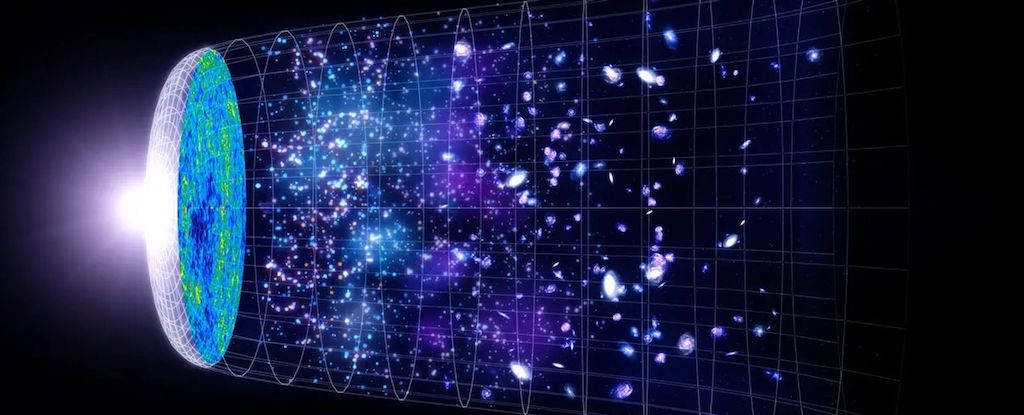In case dark matter didn’t seem mysterious enough, a new study proposes that it could have arisen before the Big Bang.
Conventional thinking goes that the Big Bang was the beginning of everything – matter, dark matter, space, energy, all of it. After the event itself, the Universe went through a period of cosmic inflation, which saw its size swell by a factor of 10 septillion within an unfathomable fraction of a second.
But some theories suggest that this inflation period actually occurred before what we call the Big Bang. And now, physicists at the University of Texas (UT) at Austin have proposed that dark matter was formed during this brief window.
The team calls the new model warm inflation via freeze-in, or WIFI. Basically, dark matter particles would be created from tiny interactions between radiation and particles in a warm ‘thermal bath’ during the inflation period.
“The thing that’s unique to our model is that dark matter is successfully produced during inflation,” says Katherine Freese, a theoretical astrophysicist at UT Austin.
“In most models, anything that is created during inflation is then ‘inflated away’ by the exponential expansion of the Universe, to the point where there is essentially nothing left.”
It’s thought that prior to the Big Bang, the entirety of the Universe existed in a singularity, a point of infinite density where spacetime is infinitely curved. But the known laws of physics completely break down there, so some physicists propose that a different epoch preceded the Big Bang, instead of a singularity.
This could be the collapse of an earlier universe, as in the Big Bounce model – or it could be cosmic inflation. This phase lasted just nonillionths of a second, and the energy transferred to matter and light to become what we refer to as the Big Bang.
From there, the stage is set for the Universe to evolve as described by general relativity.
The authors of the new study aren’t the first to suggest that cosmic inflation predated the Big Bang. They aren’t even the first to suggest that dark matter arose during this epoch. What is new is their mechanism for how the strange stuff is produced, in quantities that align with astronomical observations.
Warm inflation (the ‘WI’ in the new WIFI model) is an existing idea that suggests that radiation is produced while the exponential expansion is taking place. This creates a kind of thermal bath, allowing for tiny but important interactions to occur.
The driver of cosmic inflation is still unknown, but the stand-in is a field of hypothetical particles called inflatons, similar to the famous Higgs boson. In the warm inflation scenario, this inflaton field would lose some of its energy to radiation in the thermal bath.
From there, the radiation produces dark matter particles through a process called UV freeze-in (there’s the ‘FI’ in WIFI). Essentially, the dark matter never reaches equilibrium with the bath, and the temperature of that bath stays below a certain threshold.
According to the team’s calculations, this mechanism produces enough dark matter to account for the amount that astronomical observations tell us is out there.
This doesn’t mean the mystery is solved, of course. It’s just one hypothesis of many, including that dark matter arose in its own ‘Dark Big Bang‘ later on.
For now, the WIFI model can’t be directly verified, but at least part of it could be soon. Upcoming studies of the cosmic microwave background, such as CMB-S4, could put the idea of warm inflation to the test.
“If future observations confirm that warm inflation is the correct paradigm, it would significantly strengthen the case for dark matter being produced as described in our framework,” says UT physicist Gabriele Montefalcone, co-author of the study.
The research was published in the journal Physical Review Letters.





